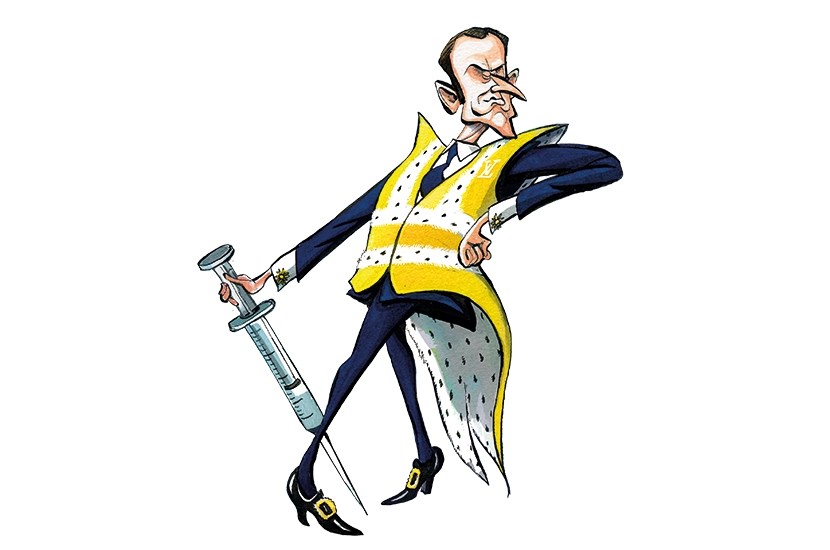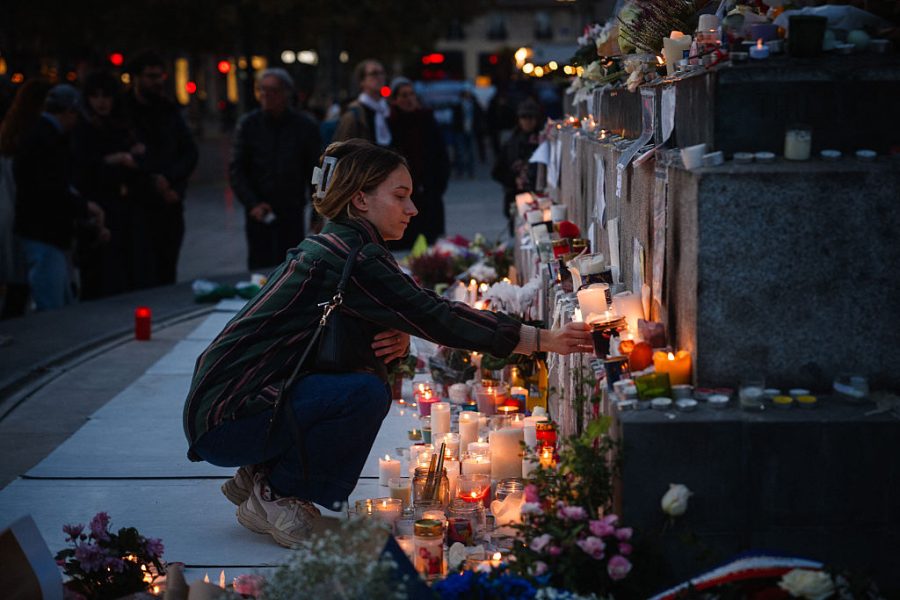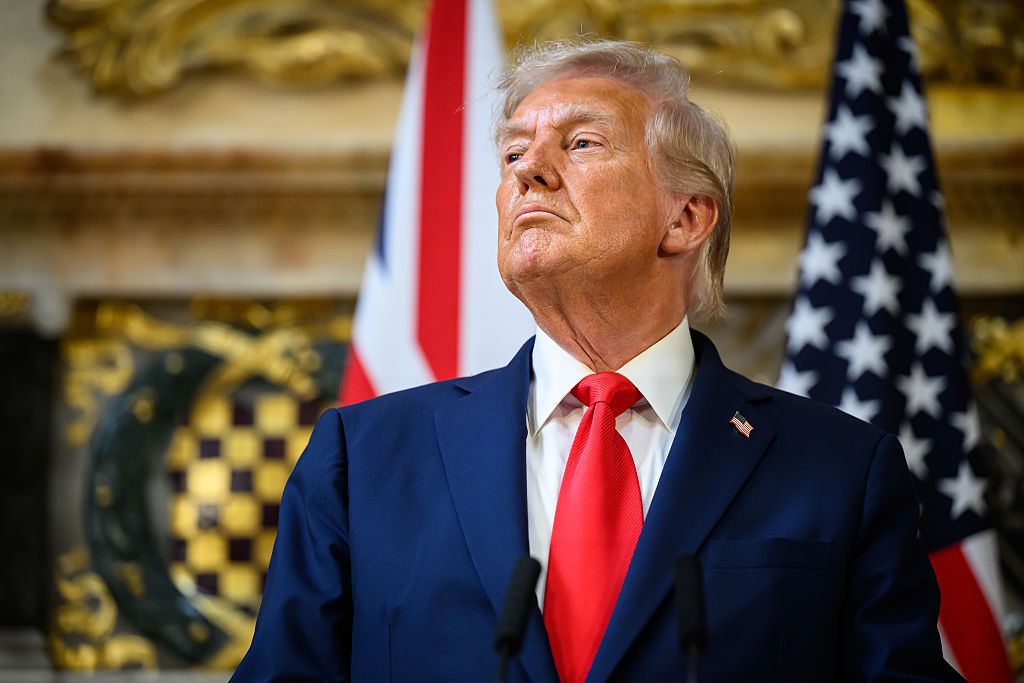In the early years of his presidency, Emmanuel Macron became known as Monsieur ‘En Meme Temps’. The president of France was in the habit of setting out one vision but, ‘at the same time’, presenting an alternative point of view. He acquired the reputation of a man who was ideologically elusive. What does he stand for? Neither left, neither right, was his campaign slogan in 2017, and four years on he continues to flummox the French.
Nowhere is this equivocation more apparent that in Macron’s attitude to free speech. Twelve months ago, the French teacher Samuel Paty was brutally slain outside his school because he had shown a caricature of the prophet during a class discussion about freedom of expression. In the weeks that followed, Macron spoke with forceful eloquence about his determination to defend French values.
‘We have rights: freedom of expression, of caricature, which has set so much ink flowing,’ he declared. ‘We will have to defend the Enlightenment against obscurantism…respect is only possible if human dignity is paramount, but respect cannot be at the expense of the freedom of expression.’
In July this year, a man with a street advertising business, Michel-Ange Flori, expressed his opposition to the introduction of the COVID passport with a caricature of Macron dressed as Adolf Hitler. The president didn’t appreciate the billboards that appeared in Flori’s home town and took legal action. Last month, Flori was fined €10,000 ($11,600) for publicly insulting the president.
Flori wasn’t the first whose free speech offended the president. In September 2020, Macron publicly rebuked Georges Malbrunot of Le Figaro, accusing the journalist of being ‘unprofessional and mean’ after he wrote a story about the president’s political strategy in the Lebanon.
Yet just minutes before Macron’s petulant outburst he had defended Charlie Hebdo’s right to publish cartoons of the Prophet.
‘It’s never the place of a president of the Republic to pass judgement on the editorial choice of a journalist or newsroom, never,’ he said. ‘Because we have freedom of the press.’
Classic Macron. Celebrating free speech and at the same time scolding a journalist.
Last week, Macron launched a commission to combat what he calls fake news and conspiracy theories. It’s been a pet theme of his throughout his presidency. During campaigning for the 2019 European elections, for example, his party, LREM, wrote to broadcasters urging them not to transmit fake news, and warning that Marine Le Pen’s party was a threat to democracy.
The president’s enemies, particularly on the left, counter that in fact it’s his party who use social media to spread misinformation.
Macron believes fake news and conspiracy theories are everywhere, and that only his government can be relied on to tell the truth. Hence the commission, which will embark on a noble crusade to slay the purveyors of falsehoods. Designated ‘The Lights in the Digital Era’, the commission is made up of fourteen men and women, all described as ‘experts’ in their various fields. Their task, in the words of its chairman, Gérald Bronner, is to produce ‘concrete proposals in the fields of education, regulation and the battle against the diffusers of hate and disinformation’. Questions have already been raised about the suitability of one commission member, a professor who last year was reprimanded by a medical body.
Macron hails the commission as a force for good; he would, wouldn’t he, but what about its editorial independence? If it’s objective is to eradicate disinformation it might want to scrutinize some of the statements that have emanated from the Elysée since the start of the COVID crisis.
Macron’s comments about the shortage of masks, for example, have been disputed by one center-right senator. The French leader also famously trashed the Oxford-AstraZeneca vaccine, suggesting it was ‘almost ineffective’ in the over-65s. And what about reneging on those promises not to coerce people into getting jabbed?
There is a touch of the Meghan Markle about Emmanuel Macron; there’s the truth and then there’s ‘my truth’.
One of the fiercest critics of the commission’s raison d’être is the writer Anne-Sophie Chazaud, whose 2020 book Liberté d'(in)expression, depicted a France that is becoming increasingly censorial. In an interview last week she accused Macron of being obsessed ‘to use any means possible to put freedom of expression under lock and key in all domains’.
In particular, Macron resents the way social media has given a voice to the hoi polloi. He said as much last year, complaining with reference to COVID that ‘the problem for me, it’s the squeezing of hierarchies brought on by the permanent commentary…that all words are equal, those of someone who is not a specialist but has an opinion on the virus are of equal worth to a scientist. It’s a poison that threatens us’.
It is surely a sign of Macron’s megalomania that at the same time he says the Prophet Mohammed is fair game for critics and cartoonists he is inviolable. Freedom of expression in France does has its limits after all.
This article was originally published on The Spectator’s UK website.

























